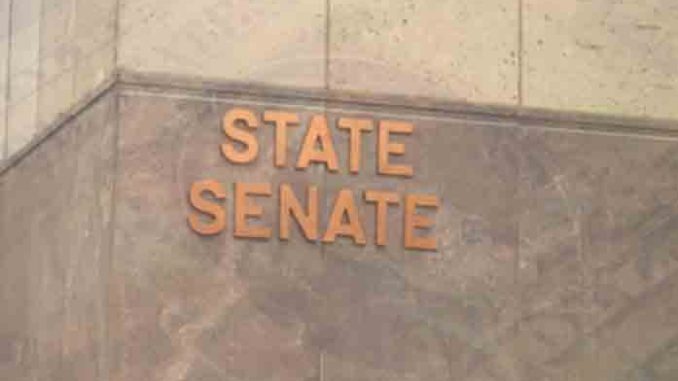
A standoff of sorts is brewing within the Arizona Legislature, as a key lawmaker has decided that the state House and Senate cannot be subjected to the very laws they pass, and that state courts have no authority to question how lawmakers conduct business.
In recent weeks, Senate President Karen Fann has had her attorneys argue in court that the legislature cannot be forced to comply with Arizona’s Open Meeting Laws (OML) and its Public Records Laws (PRL). The legal arguments put forth by Fann also contend the state judiciary has no authority to even conduct a checks-and-balance review of legislative activities unless it involves an alleged violation of the Arizona Constitution.
Fann contends she and the other 89 members of the legislature have the sole authority and power to decide whether or not to comply with the state laws regarding open meetings or public records – laws which carry potential felony charges if violated by other government officials or employees.
That puts any alleged violations of statute by the House or Senate off-limits, according to Senate attorney Kory Langhofer.
“Judicial attempts to police the legislature’s adherence to statutory directives or internal rules would entail an untenable foray into the domain of a co-equal branch,” Langhofer previously argued in an open meeting lawsuit.
It is a legal argument, however, which runs counter to decades of legislative history, not to mention several court cases. And at least one judge with the Maricopa County Superior Court did not buy into Fann’s argument as it applied to public records.
Arizona’s PRL is considered among the most pro-public access in the country. The statute requires all officers and public bodies to maintain records “reasonably necessary to provide an accurate accounting of their official activities and of any government funded activities.” Essentially any record of a decision or any expenditure of funds by the state or any political subdivision of the state is reviewable by the public.
Earlier this year Fann was sued in her official capacity in a dispute over records related to the Senate’s publicly funded audit of Maricopa County’s handling of the 2020 General Election. Although Fann and Senate attorneys had turned over hundreds of audit-related documents to a group called American Oversight, there were hundreds -potentially thousands- of other records which the Senate refused to provide.
The reason, according to Langhofer, is that state lawmakers have the sole authority to decide what records they wish to share with the public, regardless of the wording of any state law.
Judge Michael Kemp shot down the argument, pointing to the fact that the Arizona Legislature is responsible for writing the PRL and has made no attempt over the years to exempt itself. In fact, Kemp pointed out that state lawmakers have complied with PRL for decades without objection.
An appeal by the Senate is expected.
Meanwhile, Arizona’s law regarding open meetings is also recognized as one of the most pro-transparency in the nation. It requires all public bodies -such as school boards, city councils, and state commissions- to provide citizens with adequate notice of meeting times and places, notice of what topics will be discussed, and notice of any opportunity for the public to address the body.
Arizona’s OML also prohibits a body from “conducting official business” during a non-noticed meeting.
In 2019, several organizations sued lawmakers for purportedly holding public meetings without allowing public access while attending a non-public American Legislative Exchange Council (ALEC) conference. The main purpose of the conference is for lobbyists and other special interests to meet with Arizona lawmakers to discuss proposed legislation.
The lawsuit alleges a OML violation occurred when a quorum of legislators attended ALEC meetings during which draft language of future legislation was discussed. Judge Joseph Mikitish of the Maricopa County Superior Court rejected the challenge, ruling that the ALEC conference did not fall under Arizona’s OML.
The plaintiffs have appealed the judge’s decision, prompting a response by Senate attorney Tom Basile with a new argument to the Arizona Court of Appeals that state courts have no standing to question how members of the legislature conduct business, whether in session or when a large group of lawmakers are together at a non-state sponsored event.
The appellate court has not considered the OML case yet. However, It is expected that the legal challenges involving OML and PRL will end up before the Arizona Supreme Court later this year.
